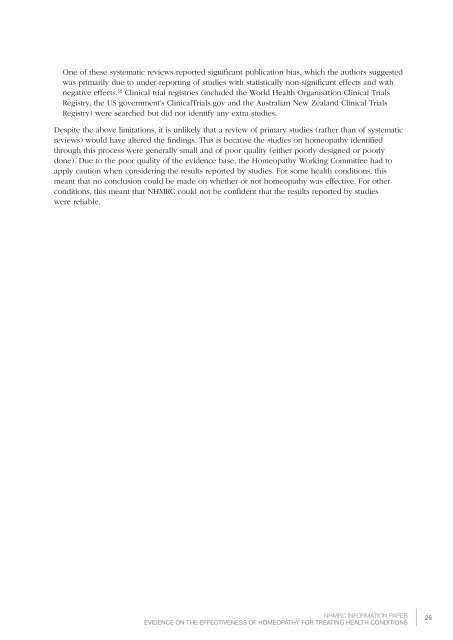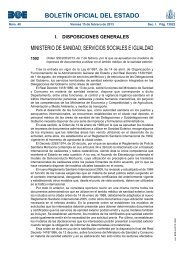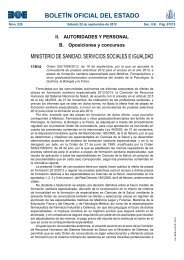cam02a_information_paper
cam02a_information_paper
cam02a_information_paper
You also want an ePaper? Increase the reach of your titles
YUMPU automatically turns print PDFs into web optimized ePapers that Google loves.
One of these systematic reviews reported significant publication bias, which the authors suggested<br />
was primarily due to under-reporting of studies with statistically non-significant effects and with<br />
negative effects. [2] Clinical trial registries (included the World Health Organisation Clinical Trials<br />
Registry, the US government’s ClinicalTrials.gov and the Australian New Zealand Clinical Trials<br />
Registry) were searched but did not identify any extra studies.<br />
Despite the above limitations, it is unlikely that a review of primary studies (rather than of systematic<br />
reviews) would have altered the findings. This is because the studies on homeopathy identified<br />
through this process were generally small and of poor quality (either poorly designed or poorly<br />
done). Due to the poor quality of the evidence base, the Homeopathy Working Committee had to<br />
apply caution when considering the results reported by studies. For some health conditions, this<br />
meant that no conclusion could be made on whether or not homeopathy was effective. For other<br />
conditions, this meant that NHMRC could not be confident that the results reported by studies<br />
were reliable.<br />
NHMRC INFORMATION PAPER<br />
EVIDENCE ON THE EFFECTIVENESS OF HOMEOPATHY FOR TREATING HEALTH CONDITIONS<br />
26






